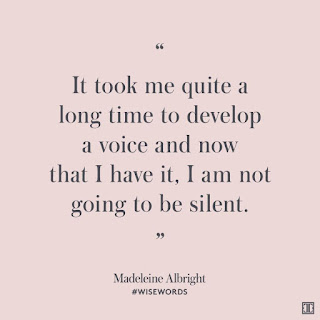Family Is Important and So Am I: Part Two - Choose Your Health
Family Is Important and So Am I - Part Two: Choose Your Health
Today's blog is Part Two of three-part series: Family Is Important and So
Am I.
If you have not already read Part One , please do so and then return here. It is important to Choose Your Truth
so that you can establish a foundation from which to Choose Your Health.
This series is for individuals who have worked on their wellness, or for
those who are currently embracing a path of recovery, or for those who have
chosen an intentional healthy way of being which is much different from their
family of origin. And in spite of their levels of wellness, these
individuals find themselves still injured by family members.
Although we cannot change the unhealthy behaviors of others, we can choose
our response to them.
Let's grab hold of another healing choice. It is time to stop hurting and…
Choose Your Health
As we have discussed in Part One, some families are healthy and some are
not. And sometimes, it is really hard for individuals whose family's
way of being is deeply defined by cultural, social, spiritual, or traditional
norms to discern its injurious impact on them. Other times, generational trauma
is so deeply engrained within the family's way of functioning, it is not recognized
as being harmful.
Even when there is a sense that something is off, it is often not safe to
speak about it. Duty, obligation, and allegiance to family -- or to specific
members within the family -- often trump the psychological, emotional, and
physical needs of the individual. Fear of being shamed or shunned is also a
strong silencer.
A couple of years ago I was working with a vibrant, professional young
married mother of two. She entered therapy to work on a few issues related to
her spouse; however, she spent most of our first few sessions together crying
about her family. Although she was proud of her Mediterranean
heritage and colorful cast of relatives, she sobbed as she disclosed the
incessant arguing, fighting, and violent exchanges which she witnessed throughout
most of her childhood.
Sitting across from me as a young woman, she found it almost impossible to
manage her anxiety. She was still required to make daily calls to her mother
and father. And every Sunday, she and her family were expected to
attend the family dinner -- where the chaos still persisted and was often
justified as "a proud family who doesn't hide their emotions."
Working together to heal her trauma, she began to understand how her health
had been impacted as a young child and how it was continuing to be
affected. Although the work was very hard for her, she began
little by little setting boundaries around the relationships within her family. She
cut back on calls and texts. She and her husband made plans on weekends,
excusing themselves from family dinner. She learned how to lessen her emotional
investment into family and begin investing into healthy, loving sources of
support. Even with sharp criticism laid against her, bravely she began choosing
her health over the needs of family.
Just as my client chose to do, one of the best ways to stop hurting and
start choosing your health is through boundary work.
Remember this...
Boundaries are not about pushing
people away.
Boundaries are about creating a
safe space around you in order to protect your healing
and promote your well way of
being.
Exercise: Although your situation may not be as harmful as my
clients, take an honest assessment of how your family or members of your family
are impacting your health -- emotionally, psychologically and physically. As
you begin reflecting upon your boundaries, go through these steps.
Write down your responses.
1) Lean into your new foundation. What is your new
truth? (Example: Family is important and so am I).
2) Listen to what your physical and emotional health are telling
you. How are you being impacted?
3) Limit your time with family members who injure you and lessen your
investment into them. In what ways can you protect your healing and promote
your wellbeing? Be specific.
4) Learn from what works and what doesn't. What do you want to
keep doing? What do you want to stop doing?
Now, based on your repsonses, write down your boundaries and begin implementing them. Start with one or two. Build upon them as needed.
Although you may receive push-back from family, remind yourself that you are not pushing others away. You are choosing your health and protecting yourself.
As you are working on this exercise and when you feel ready, move on to Part Three.
Are you feeling your shift taking hold?
Are you experiencing a new strength and sense of wellbeing from Choosing
You?
Keep going and keep growing!
Coming January 2022
SHIFTING Bravely: a Path to Growth, Healing, and Transformation
For more healing resources, connect with



Good blog post. I want to thank you for the interesting and helpful information and I like your point of view. Thank you for lots of great information.
ReplyDeleteACLS Murrieta